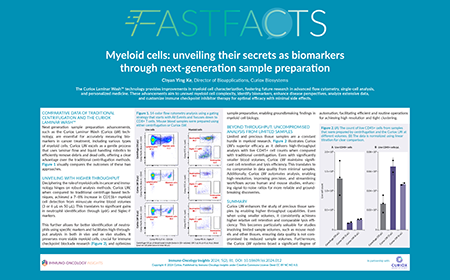Myeloid cells: unveiling their secrets as biomarkers through next-generation sample preparation
Immuno-Oncology Insights 2024; 5(2), 81
DOI: 10.18609/ioi.2024.012
Published: 25 March 2024
FastFacts
 | Watch the video or view the poster to learn about:
|
